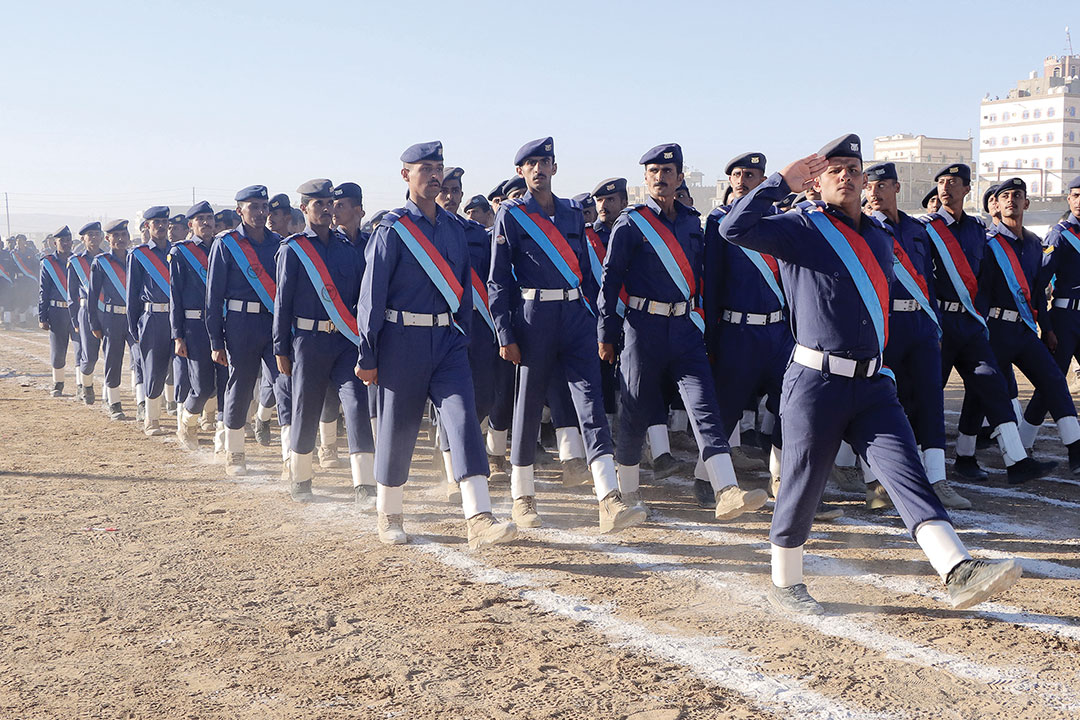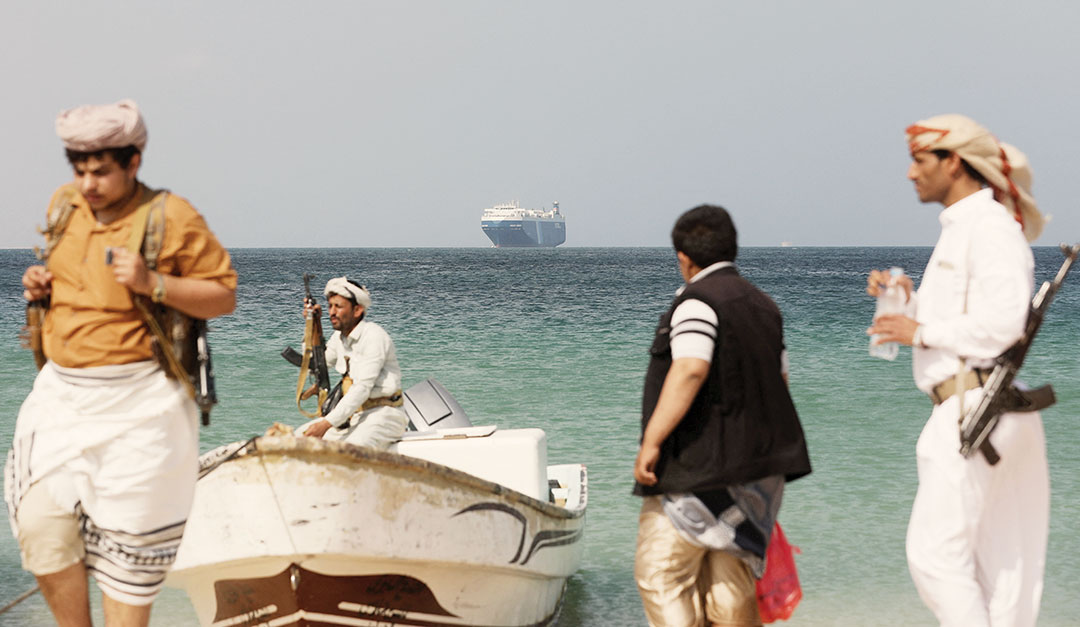One of the most important meetings of the Manama Forum in November 2023 was a special session dealing with the dynamics of the Red Sea crisis, which has significantly rippled through the Middle East, the Horn of Africa and Yemen. In fact, conflicts that arise locally often cross borders, as has been the case with Syria, Yemen, Libya and Somalia.
These conflicts have negative consequences, particularly in the Red Sea. They have exacerbated illegal immigration and weapons smuggling, as well as terrorism conducted by al-Qaida and Daesh.
The Red Sea is vital to Arabic-speaking regions. This region traces its history back to ancient civilizations and helped birth the three Abrahamic religions. Seven Arabic-speaking countries surround the eastern and western sides of the Red Sea, namely Jordan, Saudi Arabia, Somalia, Djibouti, Sudan and Egypt, in addition to my country of Yemen. These countries occupy about 90% of the Red Sea’s coasts and ports.
International policy should govern this strategic corridor. The Red Sea’s unique geopolitical importance distinguishes it from other international waterways. It constitutes a strategic meeting point, especially with its central location among the three continents of the Old World (Asia, Africa and Europe). And it constitutes a strategic nautical link between the Mediterranean Sea and the Indian Ocean.
In addition, several strategic islands control straits and choke points. Ensuring the security of Yemen is an important consideration within the Arab-African national security thematic framework. This affects the balance of power.

What is happening in Yemen has repercussions for the security of the Red Sea. Since the Houthi militias took control of the western coast of Yemen, the risks affecting freedom of maritime navigation, especially in the Red Sea, have increased. These militias also threaten the security of the region, especially after they seized control of the port of Hodeidah, the largest port on Yemen’s western coast.
In this respect, Iran’s support of the Houthi militias’ presence in the Red Sea represents an important fulcrum in Iran’s strategy and increased its fervor and determination to control such critical international waterways.
Iran has sought to employ pressure to advance its nuclear project, including threatening global trade routes to further its interests.
To achieve Iranian ambitions, this malign state supplies the Houthi militias with bomb-laden boats, naval mines and drone aircraft, also provides training to increase the lethality of Houthi attacks.
The Houthis recent acquisition of Iranian self-propelled boats, which are remotely controlled for repeated launches, turned the Red Sea into a combat zone.
Houthi terrorism in the Red Sea, whose Bab el-Mandeb strait is among the busiest shipping corridors in the world, has suppressed global trade.
These are clear facts. United States forces have stopped several ships carrying ammunition and weapons destined for the Houthi militias. To limit armaments resupplying Houthi militias and allowing them to threaten and attack ships crossing the Red Sea, we believe in halting any military support from reaching Houthi militias. This will also help avert a war that could enflame the entire region.
It would also help relieve the pain and suffering of the Yemeni people. Unfortunately, a decade has passed with the ugliest forms of humiliation and suffering, and our tragedy continues to deepen.

The common Yemeni experience is one of societal misery exacerbated by some of the highest unemployment in the world. There are few job opportunities and little social life for millions of residents. The cities are devoid of services and their residents unable to secure their needs.
Rising costs, including for vital transportation and fuel, are compounded by the collapse of exchange rates. Cities are crowded with displaced people, and the arrival of illegal immigrants increases the risk that terrorist fighters may hide among them.
This has created a reality that is difficult to overcome. Reform cannot counterbalance the extent of the massive and unprecedented disruption in the composition of the population. And successful solutions remain elusive.
The International Food Safety Authorities Network (INFOSAN) predicted worsening hunger crisis in some Yemeni governorates occupied by Houthi militias, because the United Nations stopped providing these areas with food assistance.
In fact, a report from the Famine Early Warning Systems Network indicated that the World Food Program ceased food distribution in December 2023 to areas in northern Yemen under Houthi control. That will surely lead to a deterioration in food security in 2024.
The report expressed concern that populations of Houthi-controlled areas will become critically malnourished, meaning at least 1 in every 3 families will suffer from a severe shortage of food and medicine, increasing the death toll.
Besides, the International Food Safety Authorities Network indicated that millions of families in Houthi-controlled rural governorates do not have alternative sources of safe food that would compensate for losing international food assistance. This not only doubles the deficit toward providing food security, but also compels these governorates to take extreme measures to confront looming starvation and disease.

